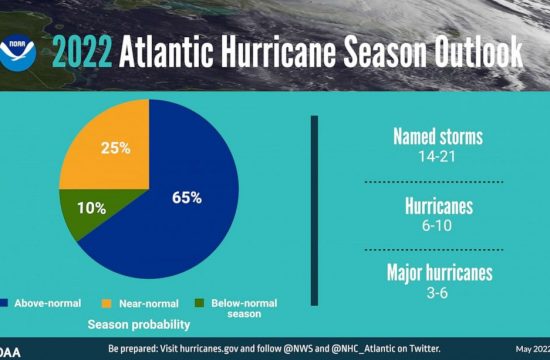The coronavirus pandemic has quickly evolved from a health care crisis to a financial one, shuttering businesses, upending industries and sending financial markets reeling.
Here’s the latest news on how the COVID-19 crisis is affecting the economy. For more on financial resources available during the pandemic, click here.
Here’s how the day is unfolding. Please refresh for updates.
Fed to provide $2.3 trillion in loans
The Federal Reserve announced additional action on Thursday to help support the coronavirus-battered economy, saying it would provide up to $2.3 trillion in loans.
The funding will assist “households and employers of all sizes,” the agency said in a statement. It is the latest in a series of measures that have included slashing interest rates and launching a $700 billion quantitative easing program.
“Our country’s highest priority must be to address this public health crisis, providing care for the ill and limiting the further spread of the virus,” Federal Reserve Board Chair Jerome Powell said in a statement. “The Fed’s role is to provide as much relief and stability as we can during this period of constrained economic activity, and our actions today will help ensure that the eventual recovery is as vigorous as possible.”
The Main Street Lending Program that the Fed launched Thursday stems in part from the CARES act passed by lawmakers in late March.
In a webinar Thursday with the Brookings Institute, Powell said he believes an economic rebound can be “robust” as the economy was in good shape before the pandemic and due to the large amount of cash and credit being pumped into it now.
“In the situation we face today, many borrowers will benefit from these programs, as will the overall economy,” Powell said. “But there will be entities of various kinds that need direct fiscal support rather than a loan they would struggle to repay.”
Pandemic could plunge half a billion people into poverty, Oxfam warns
A new report on Thursday from the nonprofit group Oxfam warned that the economic fallout from the COVID-19 pandemic could push half a billion people into poverty unless action is taken to support developing countries.
The organization urged for an economic rescue package “for all” ahead of the meetings between the World Bank, International Monetary Fund and G20 finance ministers scheduled for next week.
The report cited research from King’s College London and the Australian National University.
“The devastating economic fallout of the pandemic is being felt across the globe. But for poor people in poor countries, who are already struggling to survive, there are almost no safety nets to stop them falling into poverty,” Jose Maria Vera, Oxfam International’s interim executive director, said in a statement.
“G20 Finance Ministers, the IMF and World Bank must give developing countries an immediate cash injection to help them bail out poor and vulnerable communities,” Vera added. “They must cancel all developing country debt payments for 2020 and encourage other creditors to do the same, and issue at least US$1 trillion of Special Drawing Rights.”
White House setting up additional task force with economic focus
The White House is preparing to announce a second coronavirus task force — this one focused on reopening the U.S. economy, two senior administration officials and a person familiar with the discussions told ABC News.
This task force will include Treasury Secretary Steve Mnuchin, Trump economic adviser Larry Kudlow and other top administration officials, plus additional people from the private sector, sources said.
While the president would not give a date of opening up the economy, the economic task force plans to focus on ways to reopen a majority of the country by April 30, the day to which Trump extended the administration’s guidelines on social distancing.
6.6 million more Americans file for unemployment
An additional 6.6 million Americans filed for unemployment last week, according to data released Thursday by the U.S. Department of Labor.
Thursday’s figure adds to the some 10 million people who have already applied for unemployment insurance amid the COVID-19 pandemic that has forced non-essential businesses to close.
This means in just three weeks more than 16 million people have filed weekly jobless claims.
Just a few months ago, the unemployment rate in the U.S. was near a 50-year low.
“The unrelenting weekly deluge of UI [unemployment insurance] claims shows how abruptly the coronavirus outbreak has plunged the labor market into crisis,” Glassdoor Senior Economist Daniel Zhao said in a commentary Thursday. “In its first month alone, the coronavirus crisis is poised to exceed any comparison to the Great Recession.”
Zhao added that “the new normal” for unemployment claims “will be the canary in the coal mine for how long effects of the crisis will linger for the millions of newly unemployed Americans.”
ABC News’ Katherine Faulders and Matthew Vann contributed to this report.











